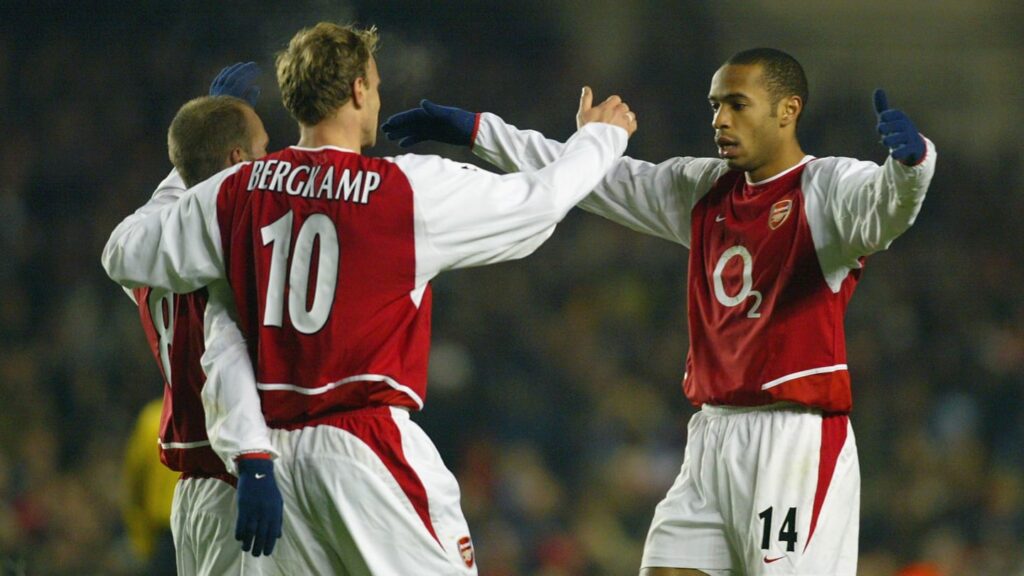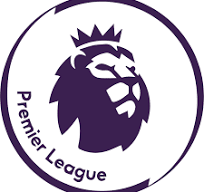
Synonymous with class and glory, it’s no surprise that Arsenal supporters have enjoyed their fair share of icons.
The Gunners have possessed an array of thinkers capable of overseeing revolution, from Herbert Chapman to Arsene Wenger, with both managers overseeing periods of domination from the touchline in north London.
However, there was far more to their respective successes than mere tactical overhauls and the ditching of alcohol. The playing talent at each manager’s disposal cannot be overlooked, with stars from these two dominant eras making up the considerable bulk of the club’s greatest-ever players. Don’t fear, there are a few worthy of a mention from the gaping void in between.
Here are 90min’s top 25 greatest Arsenal players ever.
John Radford of Arsenal, Gary Sprake of Leeds United pic.twitter.com/2wREup6RoP
— The League Magazine (@Theleaguemag) August 29, 2023
John Radford was not the most aesthetic, stylish or gifted, but he was very good at the most crucial aspect of the sport: scoring goals.
A selfless forward who excelled in other departments, Radford finished his lengthy Arsenal career as the club’s second-leading scorer of all-time. He’s since dropped down to fourth.
Radford scored 149 times for the Gunners and is remembered as one of the club’s grittiest and very best marksmen.
Many Gunners would be more than content if Ashley Cole was left off this list. A move to Chelsea off the back of a mightily successful spell with Arsenal means many supporters haven’t forgiven his apparent treachery.
An Invincible who’d cemented himself as one of Europe’s very best in his position before he left the club, Cole would go on to enjoy even more success in west London.
His physical traits rendered him borderline unbeatable in one-on-one situations and his youthful striker instincts meant he was able to wreak havoc down the left when he did venture forward.
Adored for so long at Highbury, Cole’s exit left a bitter taste.
His commentary might not be to everyone’s taste, but you certainly cannot deny Lee Dixon’s competence during his playing days.
A well-balanced right-back who offered attacking thrust from a deeper position during an era when full-backs were merely expected to operate conservatively, Dixon was a reliable operator for the Gunners.
Hard-working and remarkably consistent, Dixon barely put a foot wrong during his 619 appearances for Arsenal – the fourth-most of all-time.
Like Dixon, you may not be particularly fond of Martin Keown’s current punditry endeavours. However, he does know what he’s talking about from time to time when analysing defenders.
Keown was a bloody good one himself.
While not cherished quite like Tony Adams and without the physical attributes of Sol Campbell, Keown was a wily defender who was capable of outwitting opponents through defensive guile and overwhelming them via brute force.
You might remember his post-Ruud van Nistelrooy penalty miss antics in 2003. Keown could be a nasty customer, but that’s what made him brilliant.
Another who would later star for Chelsea, Arsenal fans were initially gutted when Cesc Fabregas departed the Emirates in 2011, but they took some solace in their superstar leaving in favour of the world’s best team in Barcelona.
Fabregas possessed technique in abundance. The Spaniard was destined for superstardom from the very beginning of his Arsenal career, with supporters watching him evolve from an effusive and spritely teenager into a cultured midfielder with impressive goalscoring instincts.
The precocious Fabregas had the chance to develop into one of Arsenal’s all-time greats, but his premature exit meant there was a sense of ‘what if…’ surrounding his nonetheless special Arsenal career.
A freakish striker who courted Europe’s attention long before his move to Arsenal in 1999, Nwankwo Kanu was a decorated performer by the time he rocked up to Arsene Wenger’s Gunners.
The Olympic gold medallist and Champions League winner was somewhat of a miracle man given he’d achieved so much with a heart defect which threatened his career.
At Arsenal, Kanu didn’t reach the 50-goal mark, but his impact during a short space of time was ever so impressive. The Nigerian possessed versatility from a forward role and had an uncanny knack for pulling off the spectacular. Just think back to his 1999 strike in the north London derby against Tottenham or his 17-minute hat-trick against Chelsea a few months later.
Kanu could dazzle and wow like very few.
Romford’s very own Pele may not have enjoyed such a long and prosperous career in contemporary times, but hey, players could get away with a San Miguel or four after training when Ray Parlour was starring for the Gunners.
A tenacious midfield operator who often produced when it mattered most, Parlour was a manager’s dream on the pitch.
The Englishman was functional and full of energy, but he was the key balancer who allowed Wenger’s continental midfielders to thrive. The unsung hero of several great Arsenal teams, Parlour’s legacy is defined by his performances in two cup finals. After earning Player of the Match honours in the 1998 FA Cup final against Liverpool, Parlour scored one of the all-time great cup final goals in a win over Chelsea four years later.
There have been fewer popular figures on the red side of north London than David ‘Rocky’ Rocastle. The south Londoner rose through the ranks at Arsenal and was quickly thrust into the limelight once his comfort at the senior level became clear.
His significance to the Gunners would rise tenfold following the appointment of George Graham in 1986, with the versatile Rocastle galvanising a hard-nosed Arsenal outfit through sheer youthful exuberance. He didn’t miss a league fixture as the Gunners dramatically won the 1988/89 league title and remained crucial to Graham’s side during their title triumph two seasons later.
A shock switch to Leeds in 1992 left supporters aghast, with Rocastle seemingly having so much more to give to a smitten Highbury faithful.
Welcome to Arsenal, Ted Drake, 21, who joins us from Southampton. The centre forward is currently top scorer in Division 2 with 22 goals this season. He joins for a fee of £6500. pic.twitter.com/7NrprqJ5WX
— Chapman’s Arsenal (@ChapmansArsenal) March 14, 2018
Herbert Chapman’s Arsenal changed the game as the dominant force of the 1930s. Chapman was blessed with a litany of sharpshooters, but none were more unrelenting in their quest to breach the opposition’s defence more than Ted Drake.
Possessing a name befitting of a naval captain, Drake took to life in north London like a fish to water, often combining superbly with wide man Cliff Bastin. While Bastin provided craft and guile (and plenty of goals, too!), Drake terrorised defences with his speed, off-ball running, and goalscoring capabilities.
He topped the club’s scoring charts in each of his five seasons at Arsenal, ending his career with 136 goals in just 182 games. Who knows what his tally would have been had he not been called up to the Royal Air Force in 1939?
Pat Rice was the archetypal no-nonsense full-back who had little time for attacking endeavour. In fact, he averaged a mere goal a year during his 13-year stay with the club.
A tried-and-trusted figure on the right side of defence, Rice was the cornerstone of a Gunners outfit that required reinvigoration at the end of the 1960s.
There would be success the following decade with Rice relentlessly sturdy throughout it all. A 20-year silverware drought was broken in style with the league-cup double in 1970/71.
Wenger’s respected future assistant remained while the double outfit broke apart and he holds the joint-record for most FA Cup final appearances by an Arsenal player with five.
Marc Overmars’ time at Arsenal was somewhat brief, but his three-year spell at Highbury was nothing shy of electric.
A gifted straight-line runner who wreaked havoc down the left, Overmars benefitted from the creative mastery of Dennis Bergkamp as he scored 41 times for the Gunners.
The Dutchman was unstoppable in full cry and particularly brilliant during the club’s double-winning 1997/98 campaign. His pace added a frightening new dimension to Wenger’s Gunners.
It takes a lot to appear on both sides of the north London divide without losing face. Pat Jennings remains a respected figure at Tottenham and Arsenal having finished his career with over 1,000 senior appearances to his name.
He was one of the best shot-stoppers of his generation and the Northern Irishman spent eight years with the Gunners after Spurs let him go in 1977, erroneously believing his career was winding down.
Jennings, a traditional goalkeeper with immense instincts in one-v-one situations, played 327 games for Arsenal.
Supporters of a certain generation will never rid themselves of Charlie George’s heroics in the 1971 FA Cup final. A fierce strike from range in extra-time proved to be the winner as Arsenal downed Liverpool 2-1 to claim their maiden ‘double’.
His strike at Wembley was the highlight of George’s Arsenal career, with the ever-so-talented forward struggling for form and fitness thereafter. There were glimmers of his undeniable talent, but George couldn’t quite scale the heights he’d reached at the start of his young career.
George could’ve been special and he was exactly that for a period, but he left in 1975 with a sense of unfulfillment.
A blossoming young defender for a middling Tottenham team, Sol Campbell made the ultimate alpha move by opting to switch north London allegiances.
Now, this was nothing like the Jennings move 24 years prior. While Tottenham discarded their long-term goalkeeper back then, they were intent on retaining star man Campbell. The defender, though, was full of ambition.
His choice to switch sides means he’s still chastised by Lilywhite supporters to this day, but do you think Campbell’s all that bothered? He excelled for Wenger’s Gunners, immediately forging a stout partnership with Tony Adams during a double-winning debut season.
The dominant centre-half finished his Arsenal career with four major honours, including a pair of Premier League titles.
There were perhaps those possessing greater talent, but nobody worked harder at his craft than David O’Leary and no player has appeared more times in Arsenal colours as a result.
A composed and cultured defender, O’Leary was a major factor in ensuring Arsenal remained in the top flight during periods of mediocrity at the start of his career. He was captain for a brief time and his loyalty was rewarded with the arrival of George Graham in 1986.
In truth, O’Leary did not play a major role during the club’s success under Graham, but he can nonetheless say he is a two-time First Division winner and two-time FA Cup lifter. These collective honours complement his three PFA Team of the Year inclusions acquired between 1979 and 1982.
Freddie Ljungberg’s status among the Arsenal greats is elevated by his ability to perform in the clutch. The Swede lacked the natural flair of Pires, the class of Bergkamp and wasn’t anywhere near as destructive as Henry, but he always seemed to be in the right place at the right time.
Ljungberg scored in back-to-back FA Cup finals and was crucial in ensuring Arsenal wrapped up the 2001/02 Premier League title after the imperious Pires succumbed to a knee injury. The wide midfielder netted relentlessly during the run-in to seal the title, establishing himself as the man Wenger could rely on in the big moments.
Injuries would force a rather tame end to his superb nine-year career in north London after he became an Invincible in 2004.
Only Thierry Henry and Ian Wright have scored more goals for Arsenal than Cliff Bastin. To this day, he holds the record for most FA Cup goals, 26. Henry & Wright, between them, are top scorers for all other competitions. Debut in 1928/29 he played until 1938#afc @arsenal #coyg pic.twitter.com/xIo6n2UYPq
— ArsenalIrish🔴🇮🇪 (@ArsenalFCIrish) January 30, 2023
You’ve never seen this man play, you might’ve never heard of him, but only two players can say they’ve scored more goals for the Arsenal than Cliff Bastin.
He was Arsenal’s record goalscorer for the best part of 60 years having scored 178 times in 396 games for the Gunners.
Bastin starred down the left flank for Herbert Chapman’s dominant and revolutionary outfit in the 1930s having been scouted by chance in 1929. His scoring record may have been just that little tougher to break had his playing career not been cut short by the outbreak of World War II.
Hopes were high for Liam Brady after he joined the club in 1970 as a schoolboy, but the precocious teenager would have to wait a little while before he was let loose among the seniors.
Once unleashed, Brady quickly went about making a name for himself. The start of his Arsenal career was tricky with the Gunners battling against relegation, but Brady’s maverick brilliance from midfield helped the club remain in the top tier.
Having nursed the bleaker days, Brady then spearheaded a prosperous period for the Gunners as he racked up more than 300 appearances, won the FA Cup and became the first foreigner to earn PFA Player of the Year honours.
There’s not an Arsenal fan that would’ve projected Seaman’s rise to becoming the club’s greatest-ever goalkeeper when he signed from Queens Park Rangers in 1990.
The Gunners already had the popular John Lukic at their disposal, but George Graham knew what he had with the tashed-up Seaman. Boasting a distinct look, the Arsenal goalkeeper blossomed at Highbury and quickly became England’s number one, too.
A brave shot-stopper who had the tendency to pull off the unthinkable with his razor-sharp reflexes, Seaman was a stalwart between the sticks as he spent 13 years in north London and racked up 564 appearances.
The pressure Robert Pires was under to hit the ground running right away having come in as a replacement for Marc Overmars in 2000 can’t be overlooked.
Pires himself had acclimatisation concerns, but a strong French contingent in north London allowed him to settle swiftly and it didn’t take long for his class to manifest regularly at Highbury.
The Frenchman was the standout performer of Arsenal’s title-winning 2001/02 season as he claimed FWA Footballer of the Year honours. However, some would say he saved his best work for the club’s notorious campaign of 2003/04.
A smooth operator but a frequent terroriser of defences, Pires was as efficient as he was deadly down the Highbury flanks.
The one man capable of getting a smile out of Roy Keane was once Arsenal’s all-time leading goalscorer.
Ian Wright broke Bastin’s long-standing record in 1997 (fittingly with a hat-trick) and finished his Arsenal career with 185 strikes to his name.
A scorer of great and a variety of goals, Wright certainly vindicated the then-club-record £2.5m fee it took to prise him away from Crystal Palace in 1991. While his career wound down before Arsenal emerged as a dominant force, the striker still got ahold of five major honours during his time with the club.
So many pivotal cogs coalesced to form the greatest Arsenal teams of the modern era, but Patrick Vieira is one of few who was there for all three of the Gunners’ Premier League triumphs having joined the club in 1996.
A gangly midfielder who towered over his counterparts, Vieira needed no time to settle in north London amid his quest to dominate the English game. There were few who could match Vieira physically, with the Frenchman’s running power allowing him to blow defensive structures apart with the ball at his feet.
An infrequent goalscorer, Vieira saved his work in the final third for the most important of occasions and his all-round ability meant Arsenal were always in the contest in the centre of the pitch.
Vieira was an all-encompassing force ever so crucial to some of the greatest Arsenal teams the majority of us may ever see.
Condensing Dennis Bergkamp’s genius into mere words is unfair. The Dutchman could perform magic in possession that perhaps none of his contemporaries could pull off.
He arrived at a transitioning Arsenal with plenty to prove following an underwhelming spell in Italy but would establish himself as the Gunners’ creative talisman during their 1997/98 title-winning campaign, working in destructive harmony with Marc Overmars.
Bergkamp would later forge stunning connections with the likes of Pires and Henry as Arsenal emerged from functional 1-0 victors into the most stylish outfit in the land.
Bergkamp was a master of his craft and you can only be jealous of the Arsenal supporters that got to enjoy him weekly for 11 whole years.
Tony Adams is what your Gunners-supporting dad would call ‘Proper Arsenal’.
His entire 19-year playing career was spent marshalling the Gunners’ defence and Adams did so to an incredibly high standard. Revered for his Italian-like grinta and stoic leadership qualities, ‘Mr Arsenal’ went through it all in north London.
Adams endured mediocrity and the highest of highs, thriving in George Graham’s fierce back four and Arsene Wenger’s more athletic defence during his later days.
The club’s greatest-ever defender enjoyed persistent collective success and was the scorer of crucial goals, netting 48 times for the club. Ultimately, though, Arsenal supporters will never again enjoy a defender who relished the opportunity to play for the Gunners more than Adams.
The King.
Thierry Henry is, undisputedly, Arsenal’s greatest ever player, and, in the eyes of some, the finest player to ply their trade on British shores.
His signing was an utter masterstroke. Having struggled in Italy with Juventus, not even the most optimistic of supporters would’ve backed Henry to enjoy the scintillating career he did in north London.
The ultimate fear instiller, Henry was as destructive as they come. He could hurt you in so many ways, too many ways. He’d beat you with raw speed, bamboozle you with a lightning-quick dribbling sequence, baffle you with his ability from distance, and overwhelm you with his gloves and long sleeve aesthetic.
The French superstar claimed four major honours in north London and will remain the club’s leading goalscorer for a very, very long time.
Talkfooty is not responsible for the contents of external sites









